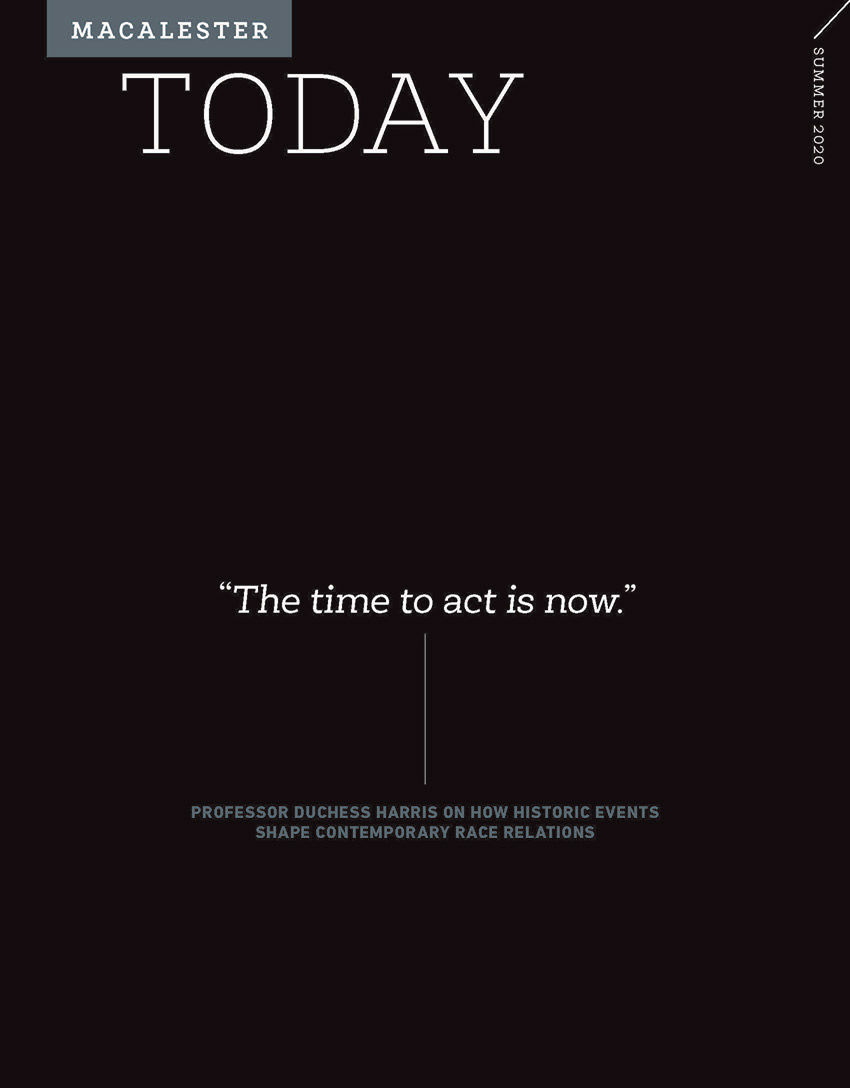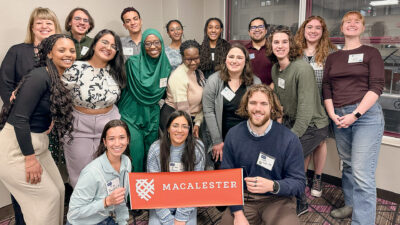
Last fall, in my first conversations about the search for Macalester’s next President, I was told several things that piqued my interest in the opportunity.
The first: Macalester is a very special place. As I met members of the Macalester family, I heard story after story about the ways in which Macalester changed a life, solved a problem, contributed to the well-being of the local community, or produced a new venture. Each was told with love and pride about Mac’s values and its impact on the wider world.
The second: You would be walking into an ideal environment for a new President. Everyone I spoke to about the opportunity described the Macalester presidency as “a dream job.”
This was a distinction meant to differentiate Macalester from colleges embarking on a leadership change from a position of vulnerability. The idea was that strong leadership, organizational stability, and a healthy financial position would make the transition to this job (relatively) easy for the successful candidate. In September, that was true. It was still true in January, when the Board of Trustees voted on my appointment.
What happened next, you all know. The arrival of the COVID-19 virus, and its cruel consequences for virtually every community around the world, disrupted the spring semester at Macalester and wreaked havoc on the global economy. College leadership made difficult decisions about moving coursework and other programs online, and sending most students home.
As I prepared to move to St. Paul, I was impressed by how the Macalester community took great care to attend to the needs of students, particularly those who were most vulnerable. I started participating in Zoom meetings with Mac’s senior staff and I learned about all the creative and clever ways faculty and staff were pivoting their classes and programs. I began to understand that the pandemic would preclude many of the transition activities, such as social gatherings, I had looked forward to, and that the job of the President would be a lot more complicated than I originally imagined.
Then, midway through our drive from Cleveland to the Twin Cities in late May, George Floyd was murdered in Minneapolis. Every time my spouse and I turned on the TV in our hotel at the end of each day, the news was more shocking and sad and infuriating. We wanted to get to the Twin Cities as quickly as possible so we could roll up our sleeves and try to be helpful.
We crossed into Minnesota on a Saturday night and I started the job on Monday morning, June 1, with the cities in crisis and everyone in our community hurting. We felt like we had arrived at the center of our country’s broken heart.
I will never forget how, in that first week, I saw Macalester’s values in action. You can say a lot of wonderful things about what you believe, but none of that really matters unless you actually come through when it counts. I learned that Macalester lives its values when it counts.
I saw members of our community joining demonstrations, standing on the front lines of civil disobedience, and gathering food and hygiene donations. When we created a community match, donors met it in 24 hours and hundreds of people wrote messages asking us to do more. That told me a lot about this place. When I got tired or discouraged, that deep, passionate commitment from everyone in this community buoyed me.
This summer, I’ve carried that energy and relied on that dedication as we set in motion new racial justice initiatives—including the Minnesota Opportunity Scholarship Fund to support underrepresented students of color from Minnesota—while simultaneously creating plans for a safer return to campus this fall. Because the public health landscape changes so rapidly, we need to plan contingency upon contingency, and I am energized by how passionately everyone is throwing themselves into this work. The pandemic is causing us to reimagine how we deliver the Macalester experience, and we’re seeing incredible creativity and ingenuity from our faculty and staff as they approach these challenges.
And we’re all learning. We’re finding that closed captioning in Zoom lectures improves access, and that online academic advising means that every single student can schedule a session rather than just the most intrepid, extroverted students who show up for faculty office hours. In some ways, these tools are actually enhancing and improving what we do, and I hope we’ll hold onto those lessons even when we can return to something more like the kind of campus life that we remember.
What’s especially encouraging is that we continue to see evidence of the relevance and indispensability of the liberal arts at every turn. The global pandemic and the national civil rights crisis have laid bare structural inequalities in society, fragilities in political and economic systems, and vulnerabilities in the very fabric of our communities. We have an incredible opportunity in front of us right now to seize this moment and take all of that passion and energy, that righteous indignation, that shock that some people are feeling, and put it to work to change the things that we shouldn’t accept.
Where but at a liberal arts college can students learn the skills to think critically about these problems, approach them in an interdisciplinary way, and engage with others to solve them from a position of empathy and compassion? Who better than Macalester can prepare world citizens equipped to address the clear challenges that we face today and the unknown challenges we will face in the future?
This summer, I saw in action Macalester’s warmth, kindness, commitment to justice, and ethos of care. It is my incredible honor to guide and protect this place that we all love. Back in January, I never could have imagined the challenges we would face together. But there is no other place I would rather be.
Dr. Suzanne Rivera is President of Macalester College. Follow her on Twitter: @MacalesterPres
August 17 2020
Back to top





